English | Inglés
Greetings, Hive!
A couple of months ago, and thanks to my good friend @ochitoalreves’ recommendation, I started to watch an anime that is rarely talked about: Dororo. I was struck by this fact because, although it’s not a work that is exactly innovative in its premise (samurai, feudal Japan, demons, nothing we haven't seen before), the truth is that it manages to use "common" elements to tell us a story that beautifully handles interesting themes such as revenge, what it means to be a human, forgiveness, and redemption, all this of course through a cast of characters just as wonderful. But first, let's take a look at its author, its story, and its most recent anime adaptation, which I will talk about today.
So without any further ado, let's start!
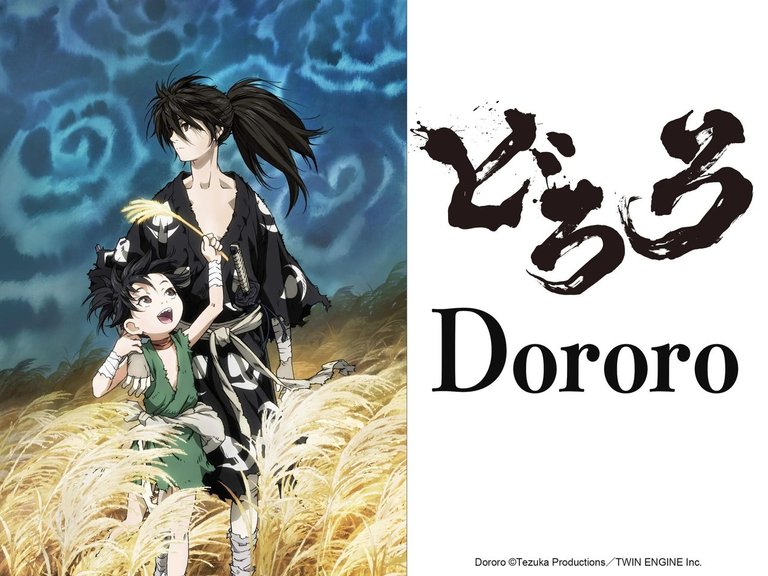

Dororo is a manga series written by none other than Osamu Tezuka, popularly known as "The God of Manga" or "The Father of Manga". Although Dororo is not one of his best known works, he’s author of such important works in the industry as Astroboy, Jungle Taitei (or Kimba, the White Lion) and Ribbon No Kishi (Princess Knight). Tezuka's fame is due to the fact that thanks to his work - strongly inspired by the genius Walt Disney - manga not only began to spread massively as a reading style, but also began to make its way into the West after a Japan severely affected by the aftermath of World War II. From this idea we can realize that we are not dealing with just any product.
Dororo was first published in 1967 but the publisher considered it to be a "too dark" product, leading to its cancellation on July 22, 1968. However, on April 6, 1969 the first anime adaptation of this manga began to be broadcast and thanks to it the manga’s publication was resumed. Both the manga and the first anime ended their broadcast in October 1969. On March 19, 2018 was announced the release of a new Dororo anime produced by Mappa studios (recently known for Jujutsu Kaisen or Shingeki No Kyojin’s fourth season) for Amazon Prime Video, premiering on January 7, 2019 and concluding June 24 of the same year with a total of 24 episodes. As a curious fact, it also had a live action movie adaptation in 2007 and another adaptation in videogame form called Blood Will Tell: Tezuka Osamu's Dororo for the PlayStation 2 console.

The story takes place in the Sengoku Period of feudal Japan, a time in Japanese history when a long and cruel civil war was waged. Here dwells Daigo Kagemitsu, a greedy feudal lord whose ambition goes so far as to offer the life of his unborn son in a pact with demons; in exchange for his son's body, Daigo's lands will be prosperous and his rule will be long. And so it happens, the night Daigo's son is born the demons take away the skin, internal organs, arms, legs, eyes, nose and ears of the newborn. After this, Daigo abandons his newborn and vulnerable son on a raft, condemning him to die. The deal between Daigo and the demons is fulfilled and his lands begin to prosper and he has a new son whom he raises as his heir, Tahomaru Kagemitsu, taking for granted that his first son, the one who was born deformed due to the pact of the demons, had already died, but what Daigo didn’t count on was that this child would be born with something that not even demons could take away from him: the will to live.
Perhaps by chance, or perhaps due to his will to live, the baby is found by Doctor Jukai, a doctor who makes wooden prostheses for those who have suffered mutilations in war; Jukai saves the baby, takes care of him, makes him a prosthetic body, raises him, and gives him a name: Hyakkimaru, and in addition to this, Jukai also instructs him in katana combat, and thanks to his demonic abilities conferred by his father's pact, Hyakkimaru becomes a very skilled swordsman. In his stay with Jukai, Hyakkimaru killed a demon that attacked them, in doing so, he recovered one of his legs and it was there where they both discovered that by killing the demons that possessed his body parts, he would recover them, so Hyakkimaru decides to embark on a journey to kill all the demons that have parts of his body. Starting his journey he met a small thief named Dororo who was being beaten by some thieves he had deceived and who also ends up saving his life because a demon appears on the scene. After being saved by Hyakkimaru, Dororo decides to travel with him to make use of his abilities, thus beginning the adventure of the two characters
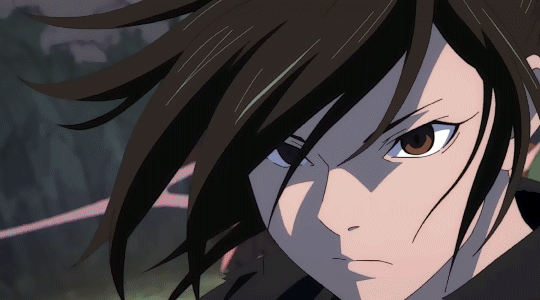

Throughout its 24 episodes of duration the anime has a rhythm that reminds me quite a bit to the DC Comics superhero series of the CW network, I mean: each episode has a self-conclusive plot with the demon and characters on duty without losing focus on the main plot which is Hyakkimaru fighting to recover his body. Honestly this pleased me, it feels like a fresh and novel (and even risky) resource in this market, there are a couple of episodes that feel dispensable because it's little or nothing what they contribute to the plot, but it's not something that bothers me rather the contrary, it's nice to know more about the world where these characters live and how they interact with it. The story is interesting enough to never get bored, I don't feel it has big plot twists or anything like that, all the events are quite consistent with each other, which I also like, it's a very well thought out story, with a clear beginning and end and without the need to rummage or force incoherent situations.
But undoubtedly the strong point of this anime are its characters; starting with Hyakkimaru, who at the beginning is shown as someone inexpressive and little affected by his environment (I mean, it’s logical considering that he had no way to express himself or know what was happening around him beyond his ability to detect the souls of living beings) but as the plot progresses and he recovers his senses it’s as if he were literally a child being born, for example, when he recovers his hearing, the sounds of the world interrupt his way of fighting, and likewise when he recovers his sense of smell and becomes interested in the smells of plants, people and things. On the other hand, Dororo works as a sort of comic relief/co-protagonist, he is a boy with a very vivid and even adorable personality, he’s quite insightful and it is easy to get attached to him, plus the relationship he establishes with Hyakkimaru seems to me one of the nicest I've seen in anime so far. The rest of the cast is just as brilliant, but out of all of them I highlight: Hyakkmiaru's younger brother, Tahomaru Kagemitsu, who at first seems very curious about the secret that his family hides, and although he recognizes that his father's actions were despicable and feels some appreciation for his older brother, he shares the ideal of sacrificing him for the greater good; Nui, Hyakkimaru's mother, who carries an enormous sense of guilt for not having done anything for her son and who in the end ends up redeeming herself; and even Daigo himself, who although he will not win the father of the year award, the series makes a good effort to make us understand his ideal and even doubt who is right. There are other characters who are much less protagonists and are relegated to a single participation throughout the series, but they are still interesting, especially a couple of them who maintain close relationships with the demons in question.
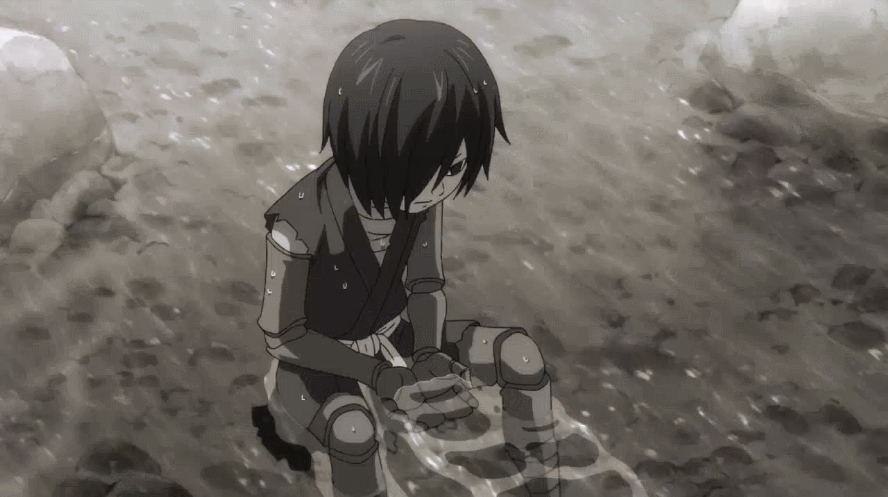

As I previously mention, this anime is produced by Mappa studios, so from the beginning we can expect quality, polished and fairly consistent animation throughout its 24 episodes, there were only a couple of occasions and one episode where there was a drastic drop in quality, but that does not affect the series as a whole. Of course, you can't expect something at the level of Jujutsu Kaisen (also animated by Mappa Studios), but you can expect a more than decent and pleasant result, especially thanks to the detail and effort they put into the action scenes. For its part the soundtrack seems to me one of the most greatest hits of this anime, the compositions have a strong inspiration from traditional Japanese music, which perfectly accompanies each and every one of the moments in this journey through feudal Japan, there is not a single theme that is wasted, both for the moments of action and for the more intimate and reflective moments, the work done by Yoshihiro Ike is sublime.

While at the beginning of the anime Hyakkimaru's goal of killing all the demons and ultimately recovering his body seems like the hero's journey and the logical path to follow, as the plot unfolds colors become much grayer as every time Hyakkimaru kills a demon and recovers a part of his body, a territory of Daigo falls and returns to misery, being hit by drought, plague, etc, bringing death and desolation to innocents. Daigo and his second son, Tahomaru, see Hyakkimaru's death as necessary to preserve the prosperity of their lands, and it is true that this may seem a valid argument, but... How much truth is there in that prosperity born from the blood of an innocent? Is it really fair to sacrifice the life of someone who is not to blame for anything and who doesn’t want to sacrifice himself so that the kingdom prospers? Does it not seem rather an easy, desperate and cowardly way out driven solely by the desire for power? On the other hand, we have Hyakkimaru, who the more parts of his body he recovers the more humanity he loses, little by little the thirst for revenge consumes him to the point of not caring what he sacrifices along the way to get his body, but what if when he recovers his body he is no longer a human? Is the path of revenge really the right one? All of these questions - and more - make an appearance in Dororo, giving us a highly reflective work with a clearly optimistic message focused on stopping the cycle of hatred.

As I said at the beginning of this post, I don't understand why this anime is not talked about more; it seems unfair that it is so underrated because it really is a wonderful work in each and every one of its sections despite the "cliché" of its premise. Dororo ends up being a short but concise and above all good experience, the journey of an innocent being recovering something he never asked to be taken away, it is a story of how we should not lose ourselves on the way to reach our goals, a reflection of how fighting hate with hate will only generate more hate, we have to be better than the things from our past, and only through this we will find the redemption of our being.
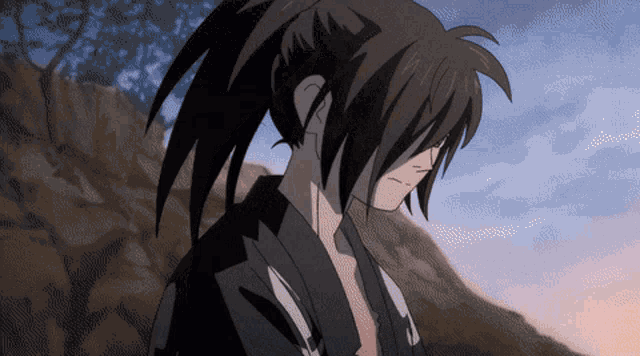

Español | Spanish
¡Saludos, Hive!
Hace un par de meses, y gracias a la recomendación de mi buena amiga @ochitoalreves, comencé a ver un anime del que se habla muy poco: Dororo. Me llamó la atención este hecho ya que, si bien no es una obra que sea precisamente innovadora en su premisa (samuráis, Japón feudal, demonios, nada que no hayamos visto antes), lo cierto es que logra usar elementos “comunes” para contarnos una historia que maneja maravillosamente temas interesantes como la venganza, lo que significa ser humano, el perdón, y la redención, todo esto por supuesto a través de un elenco de personajes igual de maravilloso. Pero antes, veamos un poco de su autor, su historia, y su más reciente adaptación al anime y de la cuál hablaré el día de hoy.
Así que sin más preámbulos, ¡comencemos!


Dororo es una serie de manga escrito por no otro que el conocido popularmente como “El Dios del manga” o “El padre del manga”, Osamu Tezuka. Aunque Dororo no sea de sus obras más conocidas, este señor es el autor de obras importantísimas en la industria como Astroboy, Jungle Taitei (o Kimba, el León Blanco) y Ribbon No Kishi (La Princesa Caballero). El renombre de Tezuka se debe a que gracias a su obra – inspirada fuertemente en el genio Walt Disney – el manga no solo comenzó a difundirse masivamente como un estilo de lectura, sino que además comenzó a abrirse paso en occidente después de un Japón gravemente afectado por las secuelas de la Segunda Guerra Mundial. Partiendo de esta idea podemos darnos cuenta de que no estamos ante cualquier producto.
Dororo fue publicado por primera vez en 1967 pero la editorial consideraba que era un producto “demasiado oscuro” llevándolo a su cancelación el 22 de julio de 1968, sin embargo el 6 de abril de 1969 comenzó a emitirse la primera adaptación al anime de este manga y gracias a ellos se reanudó la publicación del manga. Tanto como el manga como el primer anime finalizaron su emisión en octubre de 1969. El 19 de marzo del 2018 fue anunciado el lanzamiento de un nuevo anime de Dororo producido por el estudio Mappa (conocidos más recientemente por Jujutsu Kaisen o la cuarta temporada de Shingeki No Kyojin) para la plataforma de Amazon Prime Video, estrenándose el 7 de enero de 2019 y concluyendo 24 de junio del mismo año con un total de 24 episodios. Como dato curioso, también tuvo una adaptación en formato de película live action en 2007 y otra adaptación en forma de videojuego llamada Blood Will Tell: Tezuka Osamu’s Dororo.

La historia toma lugar en el Período Sengoku del Japón feudal, un momento de la historia de Japón en el que se llevó a cabo una larga y cruel guerra civil. Aquí habita Daigo Kagemitsu, un codicioso señor feudal cuya ambición llega tan lejos como para ofrecer la vida de su hijo no nacido en un pacto con unos demonios; a cambio del cuerpo de su hijo, las tierras de Daigo serán prosperas y su dominio será largo. Y efectivamente así sucede, la noche que el hijo de Daigo nace los demonios le arrebatan la piel, órganos internos, brazos, piernas, ojos, nariz y orejas al neonato. Luego de esto Daigo abandona a su recién nacido y vulnerable hijo en una balsa, condenándolo a morir. El trato entre Daigo y los demonios se cumple y sus tierras comienzan a ser prosperas y tiene un nuevo hijo a quién cría como su heredero, Tahomaru Kagemitsu, dando por sentado que su primer hijo, aquel que nació deforme debido al pacto de los demonios, ya había muerto, pero con lo que Daigo no contaba era que aquel niño nacería con algo que ni los demonios podrían quitarle: la voluntad para vivir.
Quizás por azares del destino, o quizás por su voluntad para vivir, el bebé es encontrado por el Doctor Jukai, un médico que fábrica prótesis de madera para los que han sufrido mutilaciones en la guerra; Jukai salva al bebé, lo cuida, le fábrica un cuerpo protésico, lo cría, y le da un nombre: Hyakkimaru, y además de esto, Jukai también lo instruye en el combate con katanas, y gracias a sus habilidades demoniacas conferidas por el pacto de su padre, Hyakkimaru se vuelve un espadachín muy diestro. En su estadía con Jukai, Hyakkimaru mató un demonio que los atacó, al hacerlo, recuperó una de sus piernas y fue ahí donde ambos descubrieron que al matar a los demonios que poseían las partes de su cuerpo, este las recuperaría, por lo que Hyakkimaru decide emprender un viaje para matar a todos los demonios que tienen partes de su cuerpo. Empezando su viaje se encontró con un pequeño ladrón de nombre Dororo el cual estaba siendo apaleado por unos ladrones a los que había engañado y que además, termina salvándole la vida ya que aparece un demonio a en el lugar. Luego de ser salvado por Hyakkimaru, Dororo decide viajar junto a él para hacer uso de sus habilidades, comenzando así la aventura de los dos personajes.


A través de sus 24 episodios de duración el anime tiene un ritmo que me recuerda bastante a las series de superhéroes de DC Comics de la cadena CW, es decir: cada episodio tiene mantiene una trama autoconclusiva con el demonio y personajes de turno sin perder el enfoque en la trama principal que es la de Hyakkimaru peleando para recuperar su cuerpo. Honestamente esto me agradó, se siente como un recurso fresco y novedoso (y hasta arriesgado) en este mercado, hay un par de episodios que se sienten prescindibles porque es poco o nada lo que aportan a la trama, pero no es algo que me moleste más bien al contrario, es agradable saber más del mundo donde viven estos personajes y cómo interactúan con él. La historia es lo suficientemente interesante como para no aburrirnos nunca, no siento que tenga grandes plot twists o algo así, todos los acontecimientos son bastante consecuentes unos con otros, cosa que también me gusta, es una historia muy bien pensada, con un principio y un final claros y sin necesidad de rebuscar o forzar situaciones incoherentes.
Pero sin duda el fuerte de este anime son sus personajes; comenzando por Hyakkimaru, quién al principio se muestra como alguien inexpresivo y poco afectado por su entorno (bueno, es lógico considerando que no tenía ninguna manera de expresarse ni saber lo que pasaba a su alrededor más allá de su capacidad de detectar el alma de los seres vivos) pero a medida que la trama avanza y va recuperando sus sentidos es como si fuese literalmente, un niño naciendo, por ejemplo cuando recupera la audición los sonidos del mundo interrumpen su manera de pelear, e igualmente cuando recupera el olfato y se interesa por los olores de las plantas, personas y cosas. Por otra parte, Dororo funciona como una especie de alivio cómico/co-protagonista, es un niño con una personalidad muy vivida y hasta adorable, es bastante perspicaz y resulta sencillo encariñarse con él, además de que la relación que establece con Hyakkimaru me parece de las más bonitas que he visto en el anime hasta ahora. El resto del elenco es igual de brillante, pero de entre todos ellos destaco a: el hermano menor de Hyakkmiaru, Tahomaru Kagemitsu, quién al principio se veía muy curioso por el secreto que oculta su familia y que a pesar de qué reconoce que los actos de su padre fueron despreciables y siente algo de aprecio por su hermano mayor, comparte el ideal de sacrificarlo en pro de un bien mayor; Nui, la madre de Hyakkimaru, quién carga con un enorme sentimiento de culpa por no haber hecho nada por su hijo y que al final termina redimiéndose; e incluso el mismo Daigo, que si bien no se va a ganar el premio al padre del año, la serie hace un buen esfuerzo en hacernos entender su ideal y hasta dudar en quién tiene la razón. Hay otros personajes mucho menos protagónicos y que quedan relegados a una sola participación durante toda la serie pero que igualmente resultan interesantes, sobre todo un par de ellos que mantienen relaciones cercanas con los demonios en cuestión.


Como dije anteriormente, este anime está producido por el estudio Mappa, así que de entrada podemos esperar una animación de calidad, pulida y bastante consistente a lo largo de sus 24 episodios, solo hubo un par de ocasiones y un episodio dónde hubo un bajón drástico de calidad, pero que no afecta a la serie en su totalidad. Eso sí, tampoco se puede esperar algo al nivel de Jujutsu Kaisen (animada también por estudios Mappa), pero si un resultado más que decente y agradable de ver, en especial gracias al detalle y esfuerzo que pusieron en las escenas de acción. Por su parte la banda sonora me parece uno de los puntos más acertados de este anime, las composiciones tienen una fuerte inspiración de la música tradicional japonesa, lo que acompaña a la perfección todos y cada uno de los momentos en este viaje por Japón feudal, no hay un solo tema que se desperdicie, tanto para los momentos de acción como para los momentos más íntimos y reflexivos, el trabajo hecho por Yoshihiro Ike es sublime.

Si bien al principio del anime el objetivo de Hyakkimaru de matar a todos los demonios y ultimadamente recuperar su cuerpo parece el viaje del héroe y el camino lógico a seguir, a medida que la trama se desarrolla los colores se vuelven mucho más grises ya que cada vez que Hyakkimaru mata a un demonio y recupera una parte de su cuerpo, un territorio de Daigo cae y vuelve a la miseria, siendo azotado por una sequía, una plaga, etc, trayendo muerte y desolación a inocentes. Daigo y su segundo hijo, Tahomaru, ven la muerte de Hyakkimaru como necesaria para preservar la prosperidad de sus tierras, y es verdad que esto pueda parecer un argumento válido, pero… ¿Qué tanto hay de cierto en esa prosperidad nacida de la sangre de un inocente? ¿De verdad es justo sacrificar la vida de alguien que no tiene la culpa de nada y que no quiere sacrificarse para que el reino prospere? ¿No parece más bien una salida fácil, desesperada y cobarde impulsada únicamente por el deseo de poder? Aunque por otra parte tenemos a Hyakkimaru, que mientras más partes de su cuerpo recupera más humanidad pierde, poco a poco la sed de venganza lo va consumiendo al punto de no importarle lo que sacrifique en el camino con tal de conseguir su cuerpo, ¿Y si al recuperar su cuerpo ya no es un humano? ¿De verdad el camino de la venganza es el indicado? Todos estos planteamientos – y más – hacen acto de presencia en Dororo, entregándonos una obra sumamente reflexiva y con un mensaje claramente optimista enfocado hacia detener el ciclo del odio.

Como dije al principio de este post, no entiendo porque no se habla más de este anime, me parece injusto que esté tan infravalorado porque de verdad es una obra maravillosa en todos y cada uno de sus apartados a pesar de lo “cliché” de su premisa. Dororo termina siendo una corta pero concisa y sobretodo buena experiencia, el viaje de un ser inocente recuperando algo que nunca pidió que le quitaran, es una historia de cómo no debemos perdernos a nosotros mismos en el camino a alcanzar nuestros objetivos, una reflexión acerca de cómo combatir el odio con odio solo va a generar más odio, tenemos que ser mejores que las cosas que nuestro pasado, y solo a través de esto encontraremos la redención de nuestro ser.


I hope you liked this little review of the underrated Dororo, if you already saw it I would love to know what you think of this anime, and if on the contrary, you haven't seen it yet, I hope this post motivates you to do so.
Espero que les haya gustado esta pequeña reseña del infravalorado Dororo, si ya la viste me encantaría saber qué opinas de este anime, y si por el contrario, aún no la has visto, espero que este post te motive a hacerlo.

Thank you so much for reading me, see ya next post! | ¡Muchas gracias por leerme, nos vemos en el siguiente post!
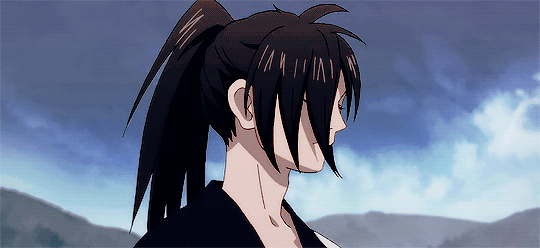
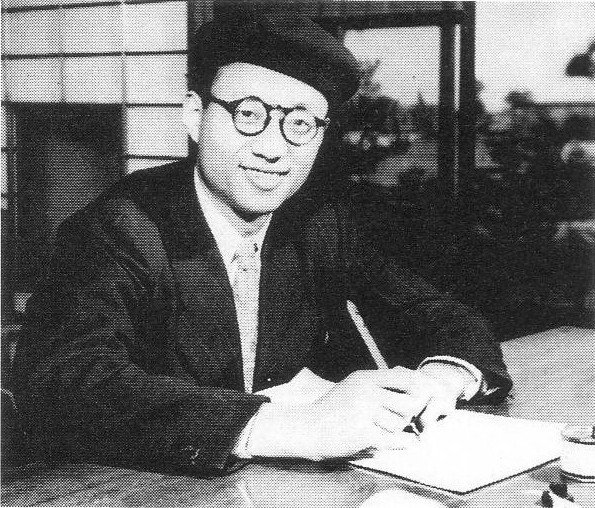
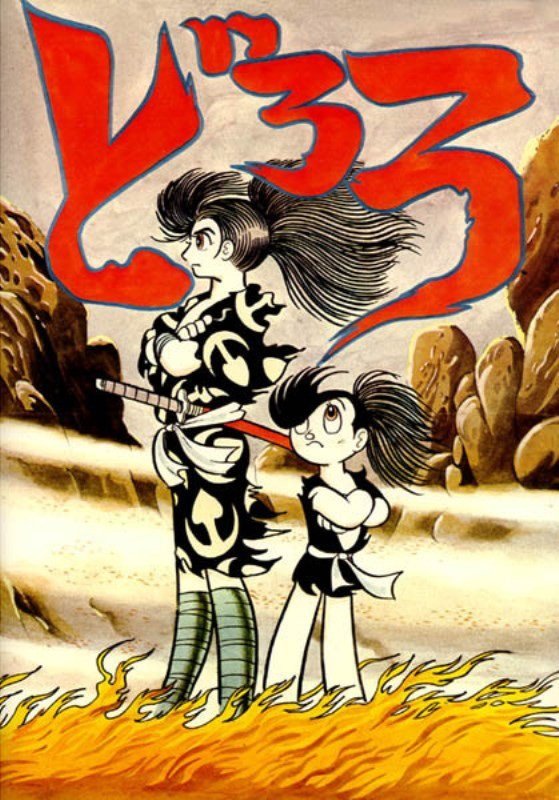
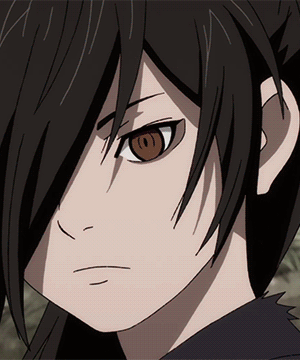
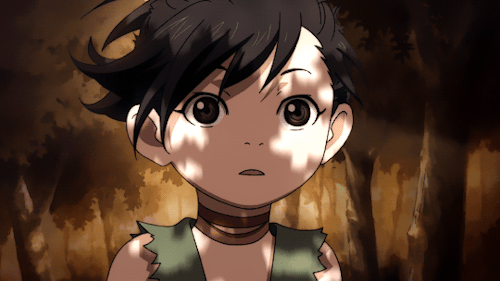
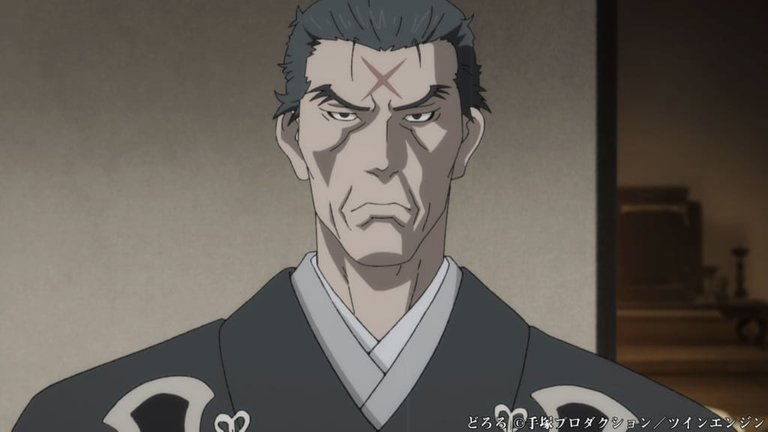
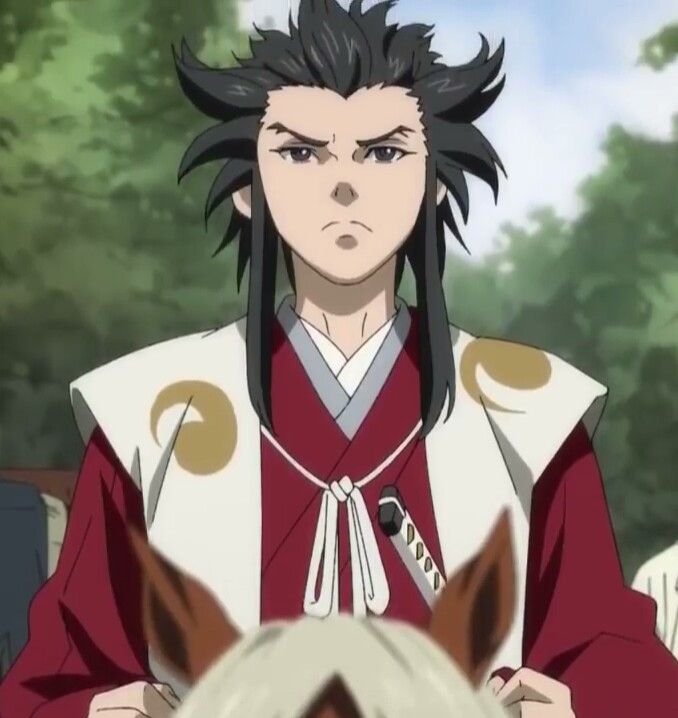
The year this came out it was my pick for best Anime of the Year, and is one of the only more Modern Anime to make it into my top ten of all time (At Number ten).
Despite a kind of plodding pace for the third quarter of the anime, everything else was an absolute wonder. I'd put the climax as one of the greatest final fates in all of anime.
I'm agree with you about the plodding, the anime could easily jump from episode 12 to the last 3 episodes, however the "filler" episodes are still fun to watch even though they don't contribute too much to the main plot.
I feel the ending as a bittersweet experience but also a necessary one for both Hyakkimaru and Dororo. I would like to see something else about this anime but considering there's a big chance to mess the original experience, it better keeps this way.
Beautifully written, and I learned a lot reading it lol. :D Thanks for sharing ^-^
Thanks a lot! I'm glad you liked and learned something new :)
The rewards earned on this comment will go directly to the person sharing the post on Twitter as long as they are registered with @poshtoken. Sign up at https://hiveposh.com.
Dear @alejandroaldana,
The current HiveBuzz proposal will expire in a few days.
Do you mind supporting our proposal for 2022 so our team can continue its work next year?
You can do it on Peakd, ecency,
https://peakd.com/me/proposals/199
Thank you. We wish you a Happy New Year!